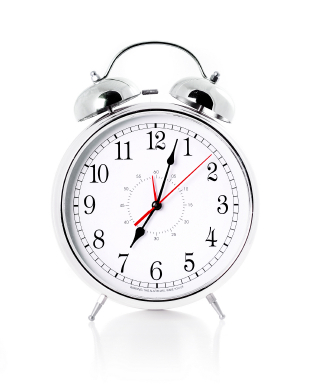Achieving the best possible sleep and manage fatigue
 How well you sleep depends on the time that you go to bed and the number of hours it has been since the last time that you slept
How well you sleep depends on the time that you go to bed and the number of hours it has been since the last time that you slept- Try to go to bed and wake up at the same time everyday
- Go to bed when you feel sleepy and ready to sleep
- Avoid taking long naps during the day
- Include physical activity in your daily routine
- Avoid reading, watching television and eating in bed
- Avoid intense exercise before bedtime
- Plan time to relax and decompress before bed
- Avoid the overuse of nicotine or caffeinated beverages such as coffee, tea, soft drinks, and alcohol
- Avoid using alcohol and non-prescribed drugs to help you sleep
- Keep your bedroom quiet, dark and cool
- If you cannot sleep, get up and out of bed, but stay in the dimmest light possible
Avoiding fatigue when travelling across time zones
Most of us have an intuitive notion of our internal clock. To have ever experienced the symptoms of jet lag after a trans-oceanic flight is to become aware of the internal clock. For many, jet-lag evokes the feeling that the brain is in one time zone while the body is in another. Under normal circumstances, our internal clock (or circadian pacemaker) coordinates our internal daily physiology with the external 24-hour day-- keeping the brain and body in the same time zone. As a result, we generally sleep at night and are awake in the day. Our levels of alertness and our ability to perform will change throughout the day, but we can be at our best and worst at fairly predictable times every day. Flying across time zones or working night shifts put us at odds with our internal clocks.
By changing bedtimes by about an hour each day before your departure, begin to adopt the sleep schedule of your destination time zone. If you're travelling east, start going to bed earlier; if you're travelling west delay your bedtimes.
If you are flying within 6 time zones, try to adopt the schedule for sleep and meals appropriate to your destination as soon as you arrive. The day/night pattern in the new time zone will help the circadian pacemaker adjust. A nap in the plane prior to arrival or a short nap at the new destination can help to reduce fatigue on the day of arrival.
This content was developed by Diane Boivin, MD, PhD, director of the Centre for Study and Treatment of Circadian Rhythms.
[Circadian Rhythms: what are they?] [Circadian Rhythms: the effect of the light] [Circadian Rhythm Disorders] [Circadian rhythms disorders: a few tips]


